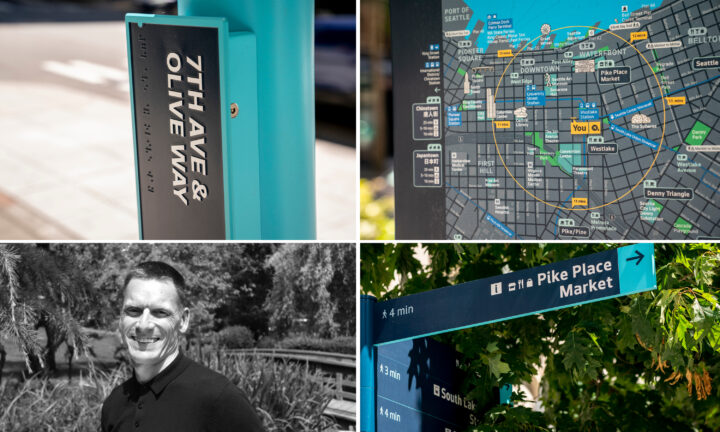Adrian Bell leads Applied’s operations in the Pacific Northwest. He has over three decades of transportation planning experience within the public and private sectors and oversees the planning and business case development of complex wayfinding projects for cities and their transit systems and facilities.
Based in Vancouver, British Columbia, Adrian has produced planning, management and business case advice for numerous urban projects in North America including the cities of Vancouver, Edmonton, Cleveland, and most recently, Seattle. Notable projects include the implementation of Metro Vancouver’s transit wayfinding standards; cited by the Canadian Urban Transit Association as “national best practice”, and a strategic advisor to Metrolinx in Greater Toronto. Other clients include the University of British Columbia, University of Washington, and Singapore’s High Speed Rail terminus.
Prior to joining Applied, Adrian held several senior positions in London local government including Head of Transportation Strategy for the London Borough of Bromley. Subsequently, he became the Head of Active Travel Development for Transport for London responsible for projects that helped lead the capital’s walking and cycling revolution. After emigrating to Canada, Adrian was employed by TransLink as their lead on mobility management where he produced a regional demand management strategy and a white paper on new mobility services which forms the basis of the regional innovation program ‘TransLink Tomorrow’.
Question (Q): EMERGE in design is…
Adrian Bell (AB): Our work makes journeys easier to understand, improves the accessibility of complex places, and reveals a deeper experience of cities. For us, EMERGE in design is when a sophisticated wayfinding solution helps someone intuitively understand the potential to explore a new place, gain more from their visit, or travel in a new way. In this way, information design can be a positive, easily implemented and affordable way for cities and communities to emerge with vitality and viability.
Q: How does design influence EMERGEnt ideas?
AB: We strive to meet the abilities and needs of everyone that uses our work while understanding the importance of achievability. Our ideas emerge from a design-thinking process that engages with communities, visitors, and users with particular needs and translates them through the knowledge of how wayfinding works to create innovative designs that engage people with the full potential of the places in which they live, work and play.
Q: How are you EMERGEing in your work?
AB: Our work helps people make smarter choices about how they travel and in particular, encourages walking, cycling and transit. We apply science and innovation from a wide range of related disciplines to nudge decisions and challenge habits in order to help cities to function better and be more competitive.
Q: Who or what inspires you?
AB: We are inspired by the potential for intelligently designed systems of information and interaction to positively influence behavior. When we see people make smarter choices about travel, discover new things about the city, or simply enjoy the quality of our work we are inspired to work even harder at making our projects accessible, meaningful, and beautiful.
Q: What is your ultimate goal when it comes to your work? What do you want to contribute?
AB: We are living in a time of increased recognition and acceptance of diverse needs in our communities, the impact of the climate emergency and the potential of technology. We believe that designing our spatial experiences has a strong supportive role in helping cities to adapt to inevitable changes and still remain places for people to congregate, celebrate and grow.
Q: How should community influence design?
AB: Design intended for use by a range of people should always take the time to understand and respond to their needs and values. People appreciate the involvement and the quality that comes from authorities who show this care and interest and genuine community involvement is essential to quality outcomes.





